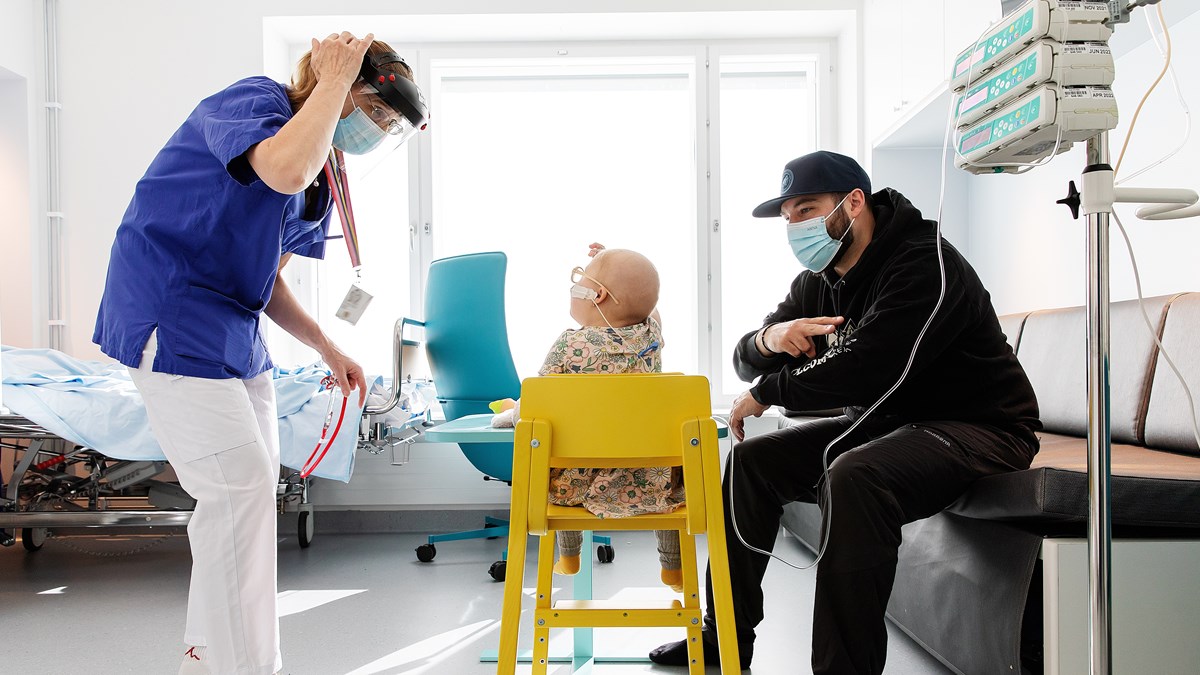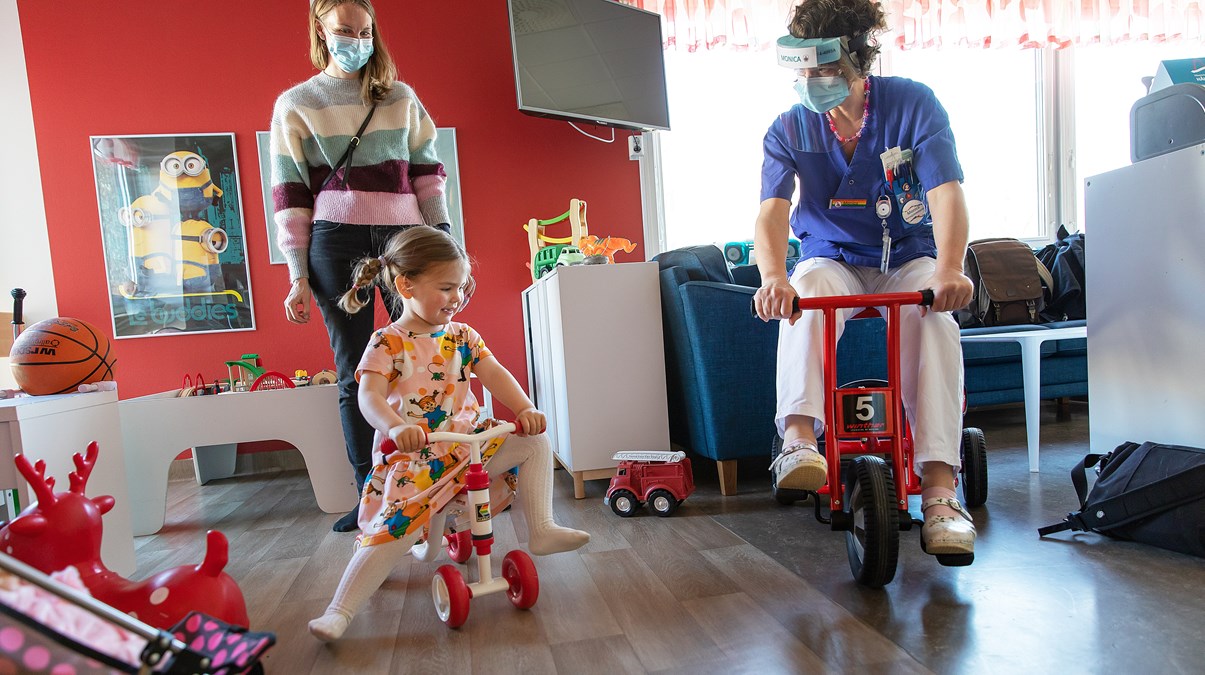Patients lead the way at the Pediatric Cancer Center

With children as patients, patient-centered care becomes a matter of course to fulfill the task. - For us, it is so obvious. A three-year-old who thinks the doctor is stupid will run out from the room, says Karin Mellgren, head of the Pediatric Cancer Center at Sahlgrenska University Hospital.
Letting the hospital apparatus revolve around the patient based on the patient's needs has long been a matter of course in pediatric cancer care. It has been required to be able to create the good care you want to provide.
– We need to create a secure environment for the child, but also for those around the child. There will be no good care if the patient is terrified and you cannot treat a child without the parents feeling safe, says Karin Mellgren.
She is the director of the pediatric cancer center, which receives children with cancer from all over western Sweden. In addition to Region Västra Götaland, the catchment area extends over Värmland, Northern Halland and Jönköping County.
The task is to take care of all children who have received a suspected cancer diagnosis - within three days.
– It is common for the children to come in, for example, on a Sunday, be investigated on Monday and for treatment to start as early as Monday evening, says Karin Mellgren.
– We want to get started as soon as possible.
The whole family is taken care of
Already there and then begins the important work of meeting the patients, the children with cancer, directly in their reality. As soon as a child is diagnosed, the pediatric cancer center takes responsibility for involving the entire circle around the child. When a pandemic does not put obstacles in the way, the whole family, including siblings, grand parents, is encouraged to participate from the beginning, to share the first shock and all the information.
– It is not a patient who is in crisis, it is a family. A cancer diagnosis always messes things up in a family; parents can be forced to stop working, siblings can have their schooling affected.
There are employees with a special focus on the siblings and there are those who have the task of taking care of the other parts of the patient's wellbeing, such as school, kindergarten and surroundings.

"We are the children's contact in everything"
Central to the work is that there should be a way in, and it should be easy.
– We are the children's contact in everything. They come to us when they get a fever or complications, but we also take care of them if they break their legs because they have been out cycling. All contact with healthcare begins with us, says Karin Mellgren.
The pediatric cancer center also works actively to explain things to the patients based on their abilities. Picture materials, illustrations, fairy tales and parables become ways to reach the children – and others.
– It is sometimes the case that when we explain to the children, suddenly everyone understands.
There are magnetic figures to take home and use so that the child can easily explain to their friends and maybe siblings.
The pediatric cancer center has the overall responsibility and handles all heavy treatments, but over the years has also developed a good collaboration with the county hospitals so that the children do not have to travel to Gothenburg every time they have to take a test or receive chemotherapy.
Karin Mellgren is convinced that it is the model that is best for the patient.
Rooms with space and warm ambiance
Children diagnosed with cancer often have a long relationship with healthcare. There are children who spend 300 of a year's 365 days in hospital. It places demands on the environments and Karin Mellgren was very pleased when the center in March 2021 was allowed to move into completely new premises.
– We have worked with this for a long time and we have been involved in the planning process all the way. It really is a building for children, made with those who spend a lot of time in hospital in mind.
She tells with warmth in her voice about the large atrium that is located in the middle of the new building and the large glass walls that open the view to the forest and nature outside.
– On our floor there is a long balcony, where children can move and play.
There is also a special lock-equipped unit with day room and corridor where children who are really susceptible to infection can receive care. There they can feel that they belong, but are still protected.
New technology in the new building also provides better opportunities to monitor patients with the help of connected instruments without constantly having to disturb them in their rooms.
Responsibility for the whole
The pediatric cancer center is responsible from the time the child falls ill until the day he or she turns 18 - or dies.
There are no hospices for children in the Västra Götaland region and no obvious model for home care. But with the patient in focus, it makes no difference to the children and their families who end up there.
– We take care of this too, says Karin Mellgren.
International collaborations
Pediatric oncology is by nature internationally oriented. These diseases are so unusual that most people working in the field around the world understand the value of exchanging experiences, it is even necessary to take development forward.
The Pediatric Cancer Center has a long tradition of active participation in international networks. Staff at the Pediatric Cancer Center have helped to adapt treatment protocols in countries with less developed health care systems. For example, in some countries with large distances between hospitals, a model that makes it possible to provide care at home to a greater extent has been introduced.
All children in Sweden, regardless of where they live, have access to equal care. According to the Pediatric Cancer Center it is based on a long tradition of collaborating between centers in Sweden with well-functioning communication channels. This approach is also used in contact with other countries.
Contact us at Sahlgrenska International Care if you are interested in finding out more about the Pediatric Cancer Center and treatments offered there.